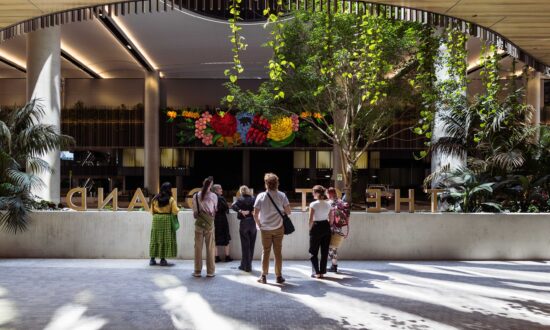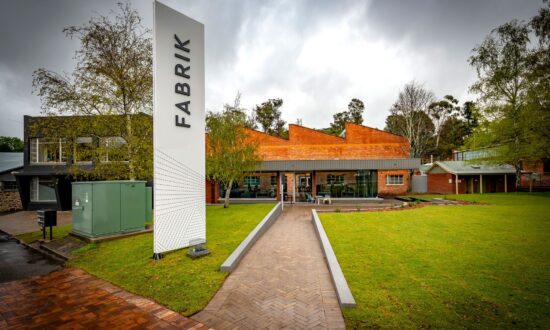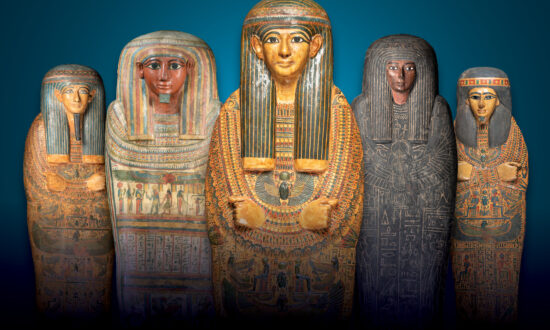99% Invisible is a globally-reaching podcast about all the thought that goes into the things everyday people don’t necessarily notice or consider – in particular, the architecture, design and engineering feats that shape our built world. We could also add urban planning to the list, given that the contributions of the planning profession are often only noticed when things go horribly wrong.
Like the podcast itself, the annual Planning Institute of Australia (PIA) Awards go some way towards rectifying this by providing an opportunity to share achievements and celebrate the value that good planning brings to our state. Held late last month at Adelaide Oval, the SA awards ceremony highlighted leading practice across a range of projects and places, from the seemingly small and technologically specific, to the reconciliatory, regenerative and truly transformative.
A cultural centre for Aboriginal-led knowledge sharing and problem solving planned for Port Adelaide won the Minister’s Award for its contemporary and considered planning for reconciliation. Designed by Ashley Halliday Architects with landscape architects Wax Design, the Yitpi Yartapuultiku centre concept plan commissioned by the City of Port Adelaide Enfield was commended for its commitment to delivering an authentic and meaningful place for Aboriginal governance.

Ashley Halliday Architects and Wax Design’s concept plan for the Yitpi Yartapuultiku Aboriginal Cultural Centre.
The establishment of an Aboriginal cultural centre within the Port Adelaide area has been part of the community’s vision and the council’s strategic planning for more than 20 years, with an ongoing Aboriginal Advisory Panel in place to lead the collaborative planning and design process.
The Greenstar-rated centre will include an impressive array of amenities, landscaped open spaces, artworks and a “living foreshore” with intertidal and aquatic habitats. According to Planning Minister Nick Champion, the centre is set to become a remarkable destination and benchmark for reconciliation planning.
While planning can go unnoticed, the opposite is also true.
In the shadow of the global climate crisis – including rising sea levels, ocean acidification, deforestation, flooding, bushfires and species loss – communities are increasingly turning to the planning profession for answers. As these dramatic ecological changes and extreme events impact on the quality of human life and wellbeing, the need for joined-up thinking and holistic approaches across urban, rural and environmental systems is becoming vital.
In this critical context, the PIA President’s Award went to the Brown Hill Keswick Creek Stormwater Project, undertaken by Adelaide, Burnside, Mitcham, Unley and West Torrens councils.

Recent flooding in the Brown Hill Creek Keswick water catchment.
This significant undertaking has as its public interface the highly popular Victoria Park / Pakapakanthi (Park 16) wetland. The project infrastructure, however, extends to four crucial drainage watercourses across metropolitan Adelaide, demonstrating the imperatives of addressing climate change and flooding at an urban scale.
PIA SA president Cate Hart commended the move to significantly address potential flooding of almost 4000 properties. “The project demonstrates the value of partnerships across the councils, state and federal government, and the property owners,” she said.
Another water detention project at Felixstow was recognised for providing green open space in an inner metropolitan area where competition for land is high. Collaboration between the SA Housing Authority and the City of Norwood Payneham & St Peters will deliver stormwater management and improved water quality while facilitating the creation and ongoing maintenance of a new community reserve.

Felixstow Neighbourhood Renewal Detention Basin & Reserve by the SA Housing Authority and City of Norwood Payneham & St Peters.
Coinciding with COP 27 (the 2022 UN Climate Change Conference), the Climate Change and Resilience Award was presented to AdaptNow! Changing for Climate Change, a social resilience initiative undertaken by the Charles Sturt, West Torrens and Port Adelaide Enfield councils.
The award recognised the depth and breadth of this program in seeking to help west Adelaide communities adapt to more frequent and overlapping extreme events, focussing on providing practical adaptation information for heatwaves, storms and floods, bushfire smoke and power outages. The end product is a library of user-friendly resources presented in different media formats and translated into the six main languages of western Adelaide to ensure a wide and inclusive reach.

AdaptNow! Changing for Climate Change social resilience program by Charles Sturt, West Torrens and Port Adelaide Enfield councils.
One of the key challenges of the climate crisis is the inequitable impacts of cumulative social and economic disruption on already vulnerable sections of the community.
The City of Salisbury won the Community Wellbeing and Diversity Award for its comprehensive approach to cohesive social planning over many years, and its employment of a suite of strategic plans to that end. These include an Ability Inclusion Strategic Plan, Intercultural Strategic Plan and Age Friendly Strategy, all underpinned by a range of related community networks and alliances which also help implement Salisbury’s overarching City Plan 2035.
Of particular note is the City of Salisbury’s work with the Council of Europe’s Intercultural City experts to embed interculturalism in everything the council does, and it use of the rigorous audit process to become accredited under the Intercultural Cities Network.

Interculturalism is a vital part of Salisbury’s suite of plans and strategies for social cohesion.
Inspirational placemaking is, of course, another key aspect of city planning. Two standout award winners here were the City of Onkaparinga’s Niipu-niipu Wama / Morton Park project in the heart of Christie Downs and the City of Whyalla’s Whyalla Beach + Foreshore Master Plan, with both projects involving multiple partners.
At Niipu-niipu Wama / Morton Park, the Roger Rasheed Sports Foundation partnered with the council and Federal Government to convert a former road reserve site into a public park offering multiple sporting facilities, path networks, picnic and barbecue facilities, an adventure play space and a skate park.

Niipu-niipu Wama / Morton Park in the heart of Christie Downs.
Whyalla’s foreshore area offered more than 1km of sandy beach and park lands, a 1980s marina, caravan park, surf club, and a major placemaking opportunity in the repurposing of more than 10ha of surplus school land in a beachside location.
Jensen PLUS led a multi-disciplinary team to develop a masterplan for the precinct to harness economic, recreation and tourism opportunities. The plan considers both high-level policies as well as place-based concepts, including a new water-play park themed on Whyalla’s famous marine visitor, the giant Australian cuttlefish.

The Jensen PLUS concept for a themed water-play park at Whyalla.
An upgraded surf club and cafés, jetty activations, the adaptive re-use of Whyalla High School’s heritage buildings, a new beachside residential village, dune rehabilitation, boardwalk path extensions, Hummock Hill trails, and other opportunities for new tourist accommodation are also detailed in the plan.
Community health and wellbeing were at the heart of another award winner in the strategic planning category. The South Australian Walking Strategy 2022-2032 aims to get “more people of all ages and abilities walking more often”, with evidence-based, easy-to-read infographics that support sustained implementation of the strategy by planners and allied health professionals. In a related category, Australia’s first smart school crossing in William Street, Norwood, will collect high-quality data that will inform better transport planning decisions and improve pedestrian safety.

Get InReview in your inbox – free each Saturday. Local arts and culture – covered.
Thanks for signing up to the InReview newsletter.
Finally, and despite some inevitable teething problems, the delivery of a 24/7 “one-stop-planning-shop” in the form of the new state-wide ePlanning platform was recognised with an award in the digital and technology category.
Considered to be a “great leap forward” in capability and efficiency, the PlanSA system is the first of its kind in Australia to cover all aspects of the planning process, from guidance documents and online lodgement and tracking, to planning code amendments and a comprehensive mapping system.
Still a work-in-progress, the new system will likely lead a digital revolution in planning services across the country, with the State Government’s planning department – along with all the other SA award winners – now contenders for recognition at the national level.

Digital simulation of rural planning provisions on the State Government’s ePlanning portal.
Stephanie Johnston is an urban planner and member of the State Planning Commission. The views expressed here are her own.
Support local arts journalism
Your support will help us continue the important work of InReview in publishing free professional journalism that celebrates, interrogates and amplifies arts and culture in South Australia.
Donate Here




